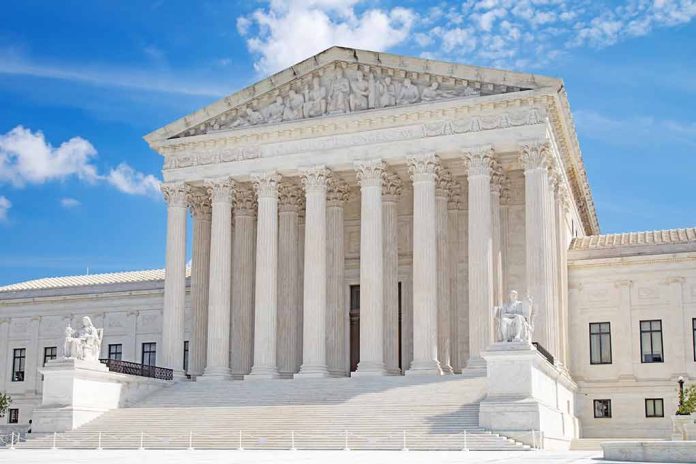
(LibertySons.org) – Everyone’s attention has been on the Supreme Court’s decision about whether former president Donald Trump has legal immunity, but the anticipation of that ruling meant another significant decision went almost unnoticed. The justices have just revoked a legal doctrine dating back to a 1984 lawsuit decision against an energy company. The federal government has used the that case to hand huge power to regulatory agencies. That power has just been cut back.
Old Decision Enabled Regulatory Overreach
On June 28, 1984 the Supreme Court ruled on a case against oil company Chevron brought by the Natural Resources Defense Council. The decision created a legal doctrine that’s become known as “chevron deference,” and for the last 40 years it’s given federal agencies huge power to make new regulations. As long as a regulation was consistent with the aim of laws passed by Congress, and with other statements the agency had made, courts were directed to defer to agencies that made a “reasonable interpretation” of any gaps or ambiguities in the law. Over the years that’s allowed various agencies to impose vast numbers of rules on businesses and American citizens.
Then, in February 2020, the National Marine Fisheries Service (NMFS) announced a new regulation that ordered fishing companies to pay for federal monitors assigned to their boats –- around $700 a day per monitor. One company, Loper Bright Enterprises Inc of New Jersey, immediately responded by suing the NMFS, arguing that while the 1976 Magnuson–Stevens Fishery Conservation and Management Act allowed the agency to impose monitors on boats it didn’t give them the authority to make the boat owners pay for them. Under the Chevron deference doctrine, courts were required to presume the NMFS had the right to do it.
Loper Bright filed their suit in the US District Court for the District of Columbia, which applied Chevron deference and ruled that the NMFS had the right to charge boats for the cost of being monitored. The company appealed, and the DC Circuit Court backed the District Court’s decision. Loper Bright appealed again, this time for leave to be heard by the Supreme Court –- and last May its petition was granted. The Supreme Court heard the case on January 17, and reached its decision on June 28.
The Supreme Court decided by 6-3 to strike down Chevron deference. Chief Justice John Roberts, giving the majority opinion, said Chevron conflicts with the 1946 Administrative Procedure Act. This act, according to Roberts, makes clear Congress wants courts to handle this sort of decision –- not federal agencies. The justices also specifically ruled that the Magnus-Stevens Act didn’t give the NMFS authority to make the fishing industry pay to be monitored, which will make Loper Bright happy, but the broader revocation of Chevron will make it a lot harder for the federal government to impose its agenda through regulation instead of law.
~Here’s to Our Liberty!
Copyright 2024, LibertySons.org






